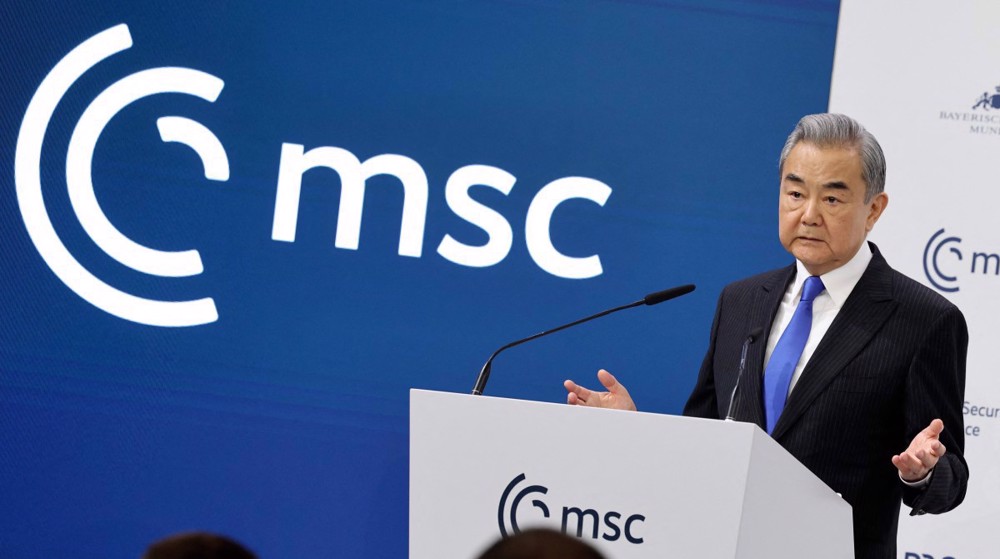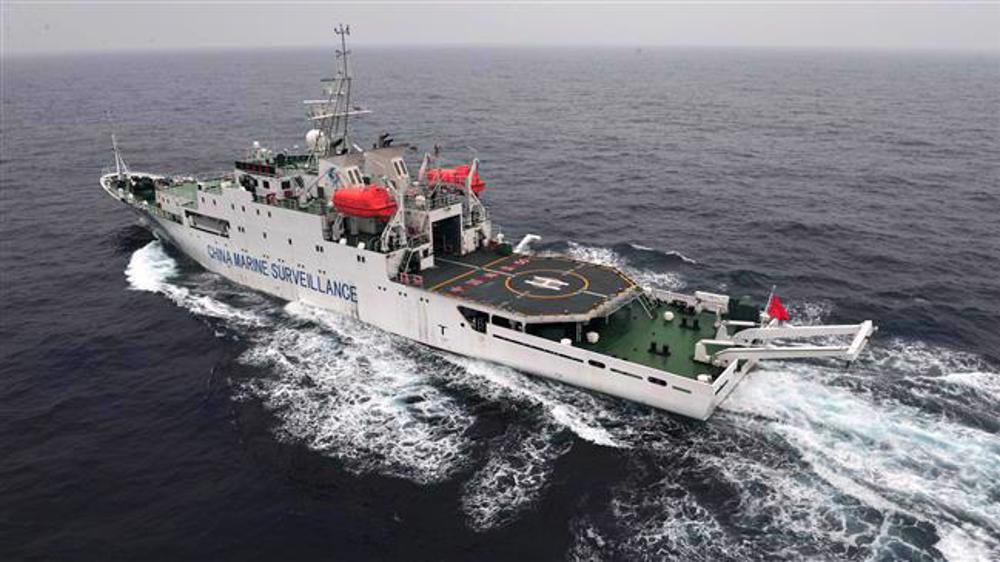China fires anti-ship ballistic missiles into South China Sea in warning to US
China has launched two ballistic missiles, including one known as the “aircraft carrier killer,” into the South China Sea, in a clear warning to the United States, which has been ratcheting up tensions in the strategic waterway.
The South China Morning Post reported on Wednesday that the two medium-range ballistic missiles — a DF-21D and a DF-26 — were launched from Qinghai Province in the northwest and Zhejiang Province in the east, respectively.
The Hong Kong-based English-language newspaper cited an unnamed source as saying that both missiles were fired into an area between Hainan Island and the Xisha Islands in the disputed waters of the South China Sea.
The source said Beijing’s goal in launching the missiles into the South China Sea was to improve the country’s ability to deny “other forces” access to the resource-rich waterway.
“This is China’s response to the potential risks brought by the increasingly frequent incoming US warplanes and military vessels in the South China Sea,” the source said. “China doesn’t want the neighboring countries to misunderstand Beijing’s goals.”
The two ballistic missiles were said to have warheads with enough maneuverability to strike large and relatively slow-moving ships, such as aircraft carriers, with Chinese media dubbing the DF-21D the “carrier killer.”
The South China Morning Post quoted Song Zhongping, a Hong Kong-based military analyst, as saying that the launch of the anti-ship ballistic missiles was clearly meant to send a signal to the United States.
“The US continues to test China’s bottom line in Taiwan and South China Sea issues, and this pushed China to showcase its military strength to let Washington know that even US aircraft carriers cannot flex their full muscle near China’s coast,” Song said.
The US had earlier in the day blacklisted 24 Chinese companies and individuals over their actions related to disputed islands in the South China Sea.
The US State Department also announced in a separate statement on Wednesday that it had imposed visa restrictions on a number of Chinese individuals under the same pretext.
The South China Sea is a gateway to major sea routes, through which about 3.4 trillion dollars’ worth of trade passes each year. China claims sovereignty over the strategic waterway and has since 2014 built artificial islands on reefs and installed military bases on them.
Vietnam, Taiwan, the Philippines, Malaysia, and Brunei have overlapping claims with China to parts of the sea.
The United States, an extra-regional force, has been trying to push back against what it views as China’s rising influence on the resource-rich South China Sea. It has sided with China’s rivals in the maritime dispute and been routinely sending warships and warplanes to the sea to assert what it calls its right to freedom of navigation, ratcheting up tensions.
Last month, two US aircraft carriers conducted tactical air defense exercises in the South China Sea, with Washington claiming that the maneuvers were “in support of a free and open Indo-Pacific.”
On Tuesday, China said the United States had flown a spy aircraft into a Chinese no-fly zone during live-fire military drills, calling the flight “naked provocation.”
Diplomatic relations between Washington and Beijing have dropped to the lowest level in decades since US President Donald Trump came to power.
The two countries are currently at loggerheads over numerous issues, including trade, technology, Hong Kong, Taiwan, navigation in the East and South China Seas, and most recently, the coronavirus pandemic.
Power running out at key Gaza hospital, ICU patients at risk: Report
VIDEO | Press TV's news headlines
‘Speaking truth is her crime’: Netizens rip into European allies of Israel for targeting Albanese
Russia reaffirms support for Iran’s sovereignty amid rising US threats
VIDEO | 3,000 bodies of Palestinians ‘evaporated’ as Israel used banned weapons in Gaza
Iran says political pressure cannot undermine its ‘inalienable’ enrichment right
Former Trump adviser Bannon plotted with Epstein to 'take down' Pope Francis
China warns US against ‘plotting’ on Taiwan, says it risks confrontation


















 This makes it easy to access the Press TV website
This makes it easy to access the Press TV website